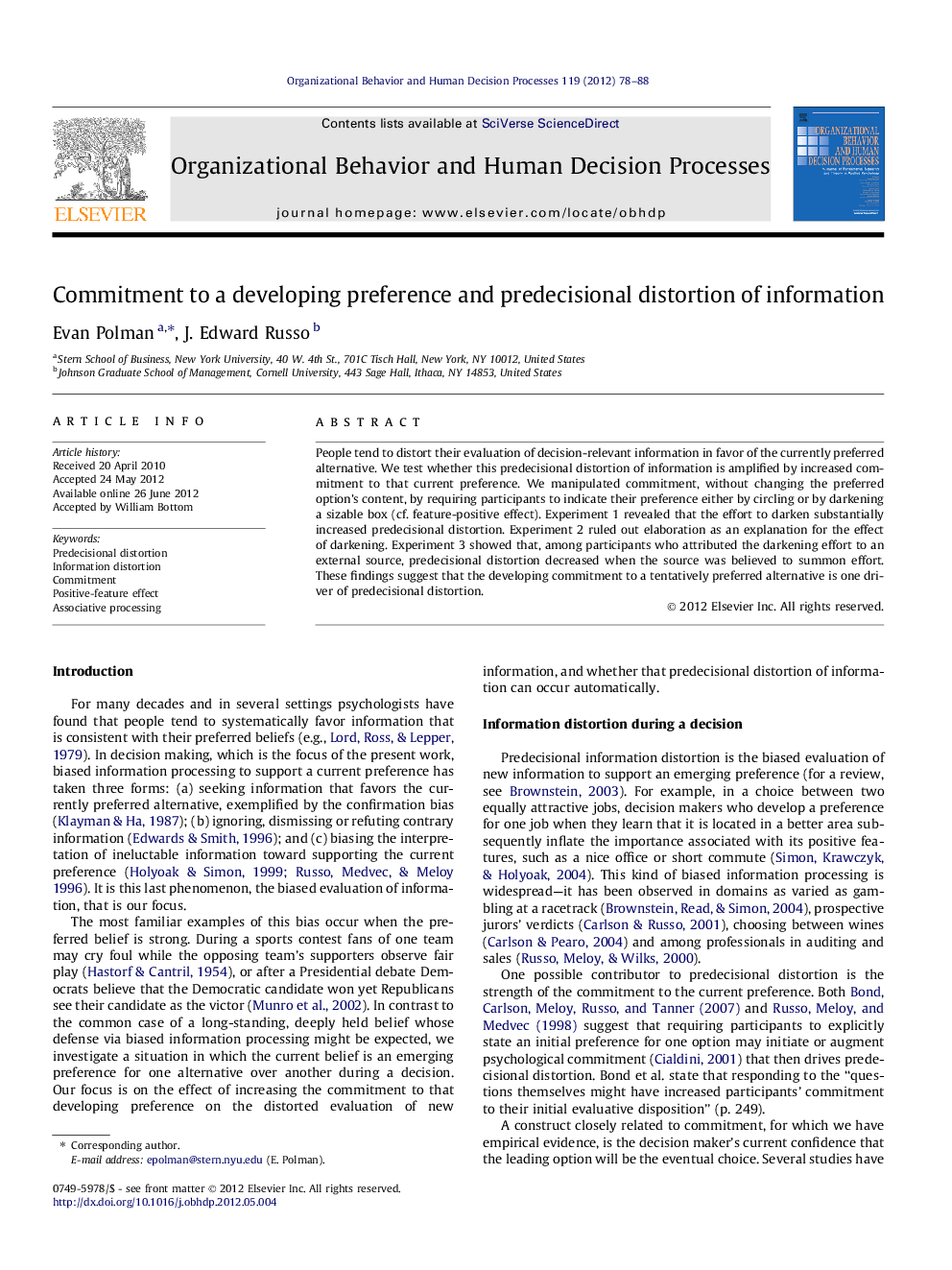ترجمه فارسی عنوان مقاله
انگیختگی ادراکی ایجاد حافظه های جدید اپیزودیک را بهبود می بخشد
عنوان انگلیسی
Commitment to a developing preference and predecisional distortion of information
| کد مقاله | سال انتشار | تعداد صفحات مقاله انگلیسی |
|---|---|---|
| 36623 | 2012 | 11 صفحه PDF |
منبع

Publisher : Elsevier - Science Direct (الزویر - ساینس دایرکت)
Journal : Organizational Behavior and Human Decision Processes, Volume 119, Issue 1, September 2012, Pages 78–88

